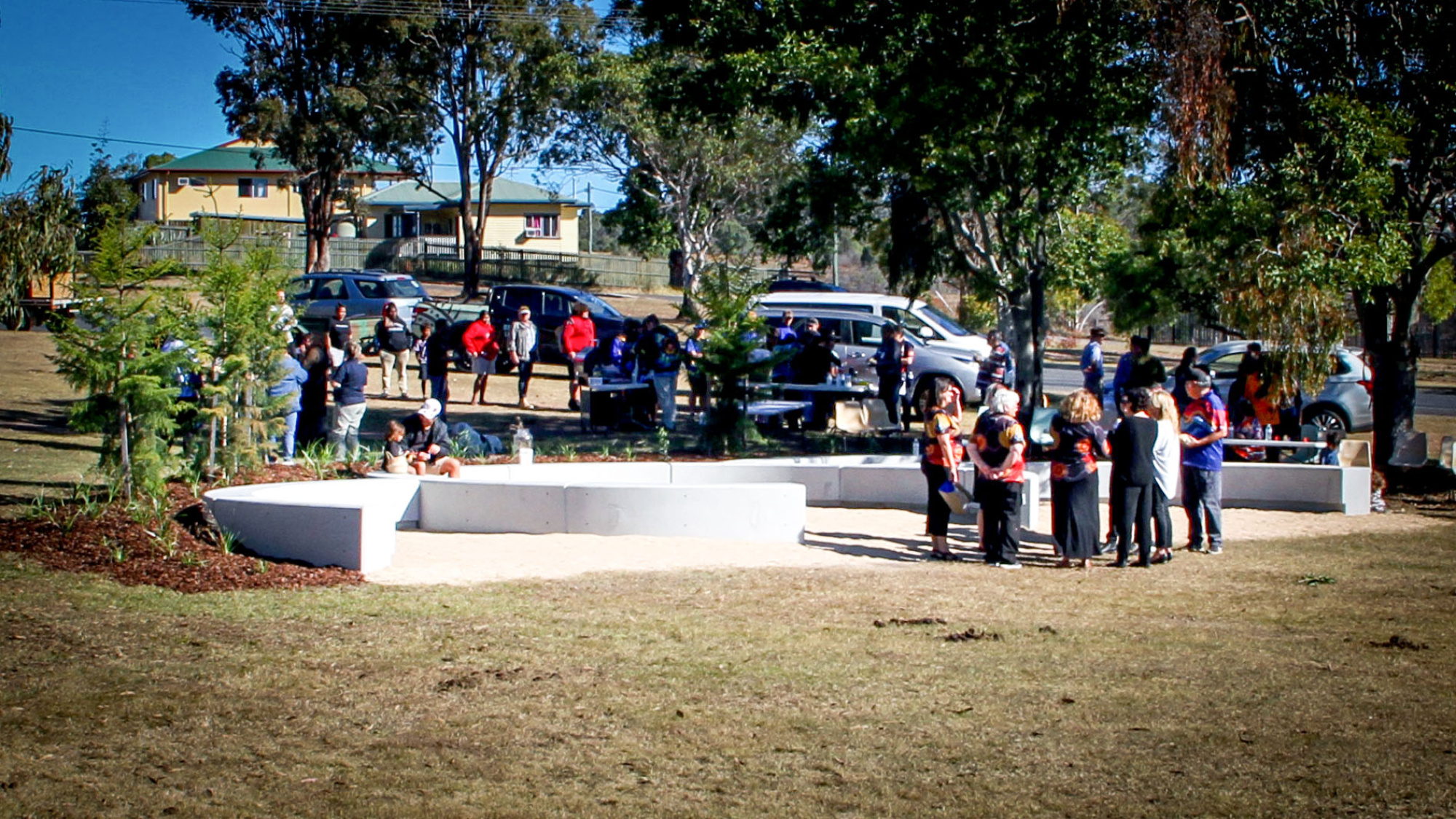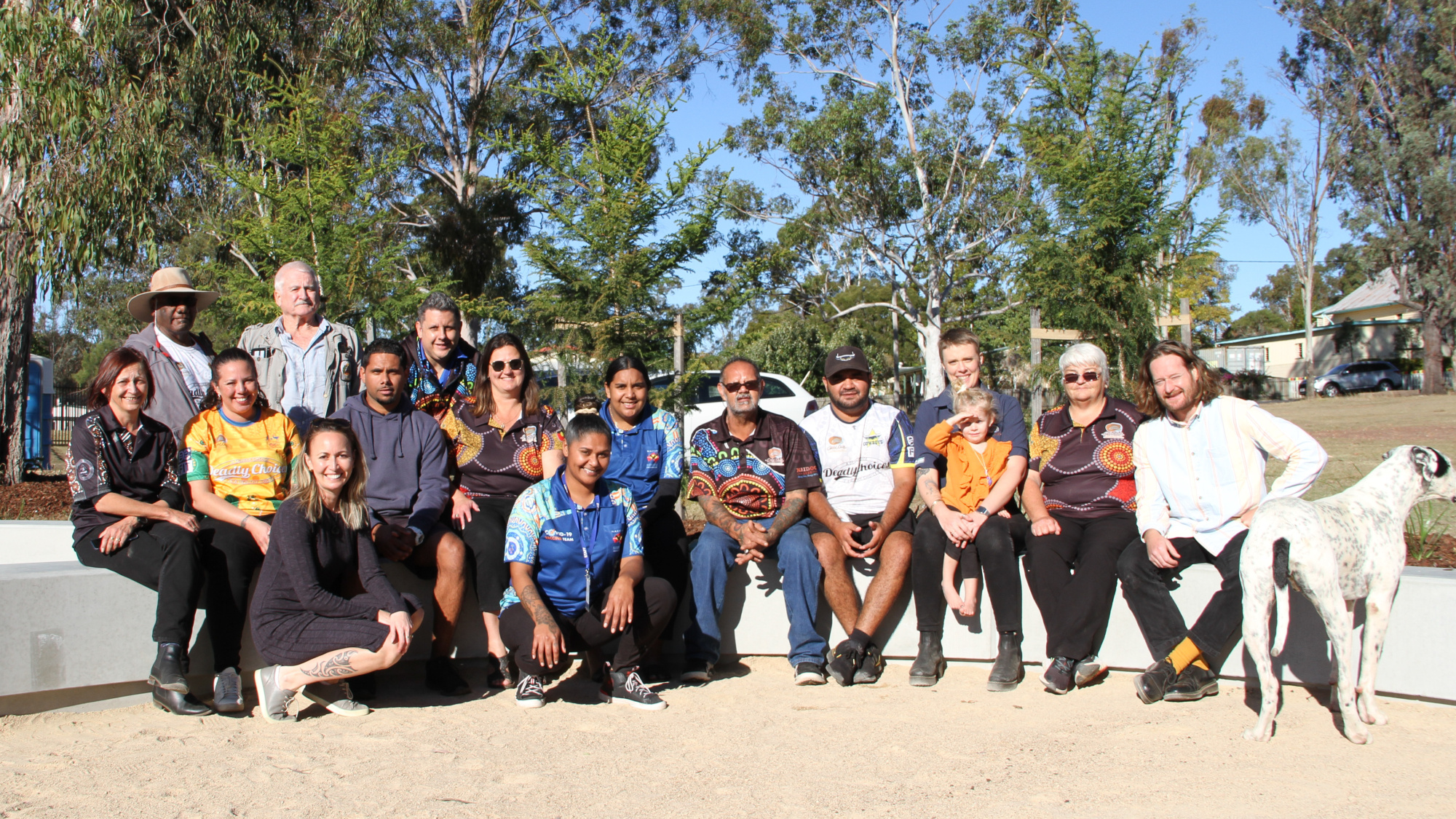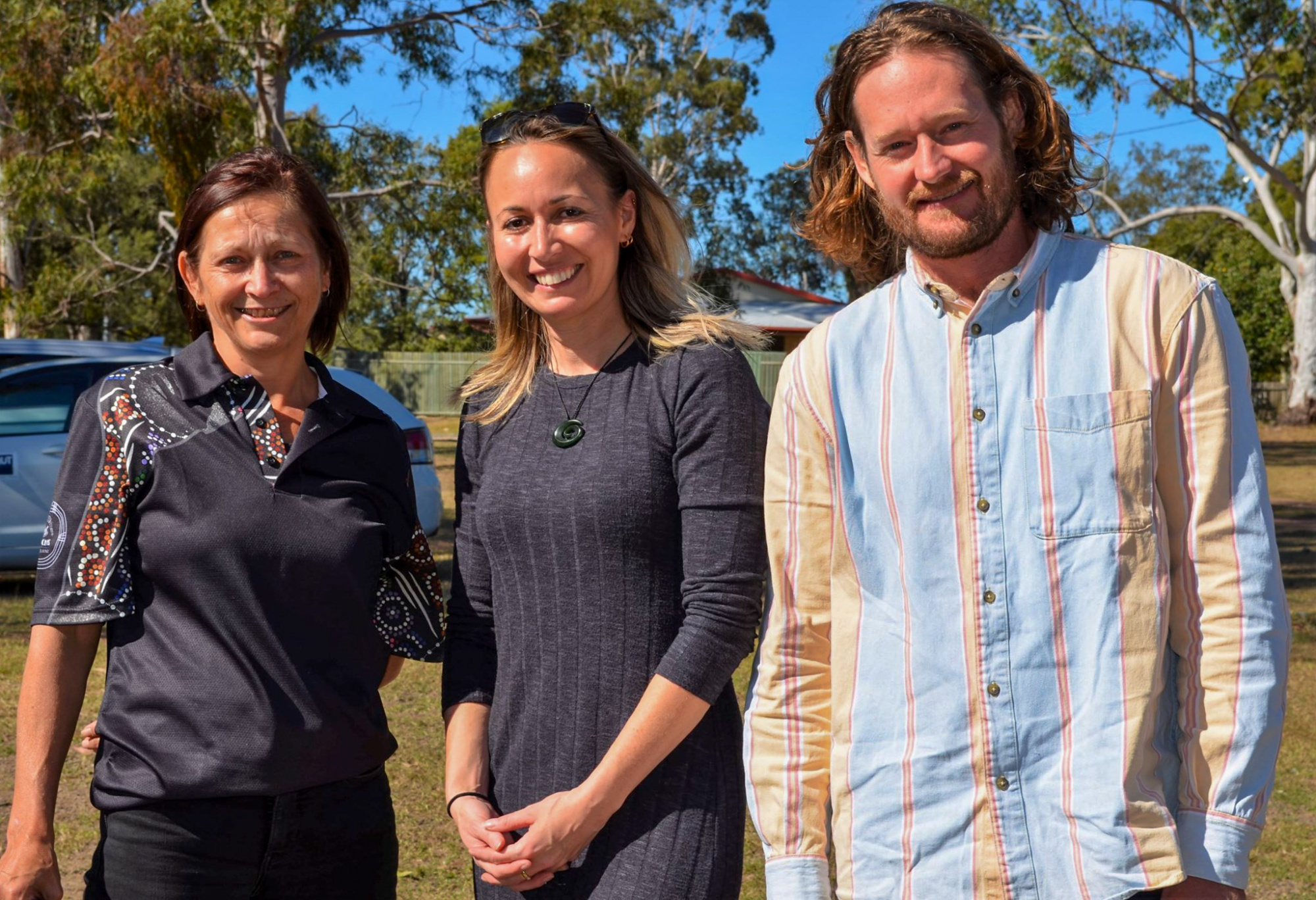The Cherbourg community has partnered with QUT landscape architecture lecturer Alayna Renata and students, Sam Davis, Briana Macqueen and Grace Gaston to design Yarning at Wakka Wakka – the town's first community-owned gathering space.
"Cherbourg Regional Aboriginal and Islander Community Controlled Health Centre wanted to create a space that could have many uses, from gathering and yarning to traditional ceremonies, or just to sit and talk after school," Dr Renata said.
Cherbourg is the most southern of the Aboriginal Local Government Areas and was once an Aboriginal reserve that saw more than 28 Aboriginal Nations forcibly relocated to the area.
"Given the important historical context of Cherbourg, it is important to understand that not all members of the community have the same needs, desires, and wants," said Sam, who will complete an Honours degree in Landscape Architecture with minor in Indigenous Knowledges this year.
"The town motto of 'Many Tribes, One Community' inspired a design that allowed both diversity and connection – many needs, one space," he said.

Yarning at Wakka Wakka (pictured above) is about 25 metres wide and seats more than 40 people, who can gather as one, or in separate groups.
The formed concrete seating includes a central space and three radiating arcs. Its 16 prefabricated sections were craned into place and bolted together by industry partner Eureka Landscapes.
Local Elders advised on the selection of plants, including wattles and gumby gumby, which have significance for the community. Year 6 Cherbourg State School students from the Ngooyee class then helped plant the garden, and Nurunderi TAFE students and staff supported the project's construction.
The next community project will be to work with local artists to paint the concrete seating and further funding is being sought to work with local artists to design and fabricate perforated steel seat backs for the space.

Cherbourg Regional Aboriginal and Islander Community Controlled Health Centre (CRAICCHS) received a grant for the current project though the Primary Health Network.
CRAICCHS chief executive officer Katherine Simpson said she hoped that Yarning at Wakka Wakka would provide opportunities for community learning, growth and connection.
"It can be a yarning circle for people to meet and connect, and a place for community presentations, significant events and celebrations," Ms Simpson said.
"I hope students come and learn about culturally significant flora, share stories and make new ones for the next generation.
"At-risk young people can also use the space at night as a way to seek comfort and connection.
"It will provide the night patrol service a chance to safely identify and support at-risk young people who otherwise grieve at the cemetery or in quiet streets," she said.
Cherbourg Aboriginal Shire Council provided the land for Yarning at Wakka Wakka and agreed to maintain the space.
"It is very important that community completely own the space for many reasons, most importantly because it's culturally appropriate but also for better usage of it," said Zala Chatur, Council's chief executive officer.
Over the next year, Dr Alayna Renata and student, Sam Davis, Dr Juliana McLaughlin from the Faculty of Creative Industries, Education & Social Justice, and Associate Professor Debbie Duthie from the QUT Faculty of Health will look at benefits of the community-owned space as part of a QUT Ignite grant that supports high quality Aboriginal and Torres Strait Islander research.
"We had conversations with community about what was possible in a place-making sense, and over the next year we will look at how the space is used by community," Dr Renata said.
"If it has a positive impact that can be applied to other Indigenous communities, this gathering space in Cherbourg could help with a proposal to establish similar community-owned sites around the country."

This year marks the 10-year anniversary of a relationship between QUT and Cherbourg.
Associate Professor Duthie, who is also QUT Director of Indigenous Health, is a Wakka Wakka Warumungu descendant and in 2011 began a student placement program in Cherbourg.
It has seen more than 200 social work, paramedic and other students participate in placements and community-initiated projects whilst learning how to practice cultural safety with Indigenous peoples and communities.
"I started taking my social work students to visit with community practitioners and agencies so they could learn more about Indigenous ways of social work practice," Associate Professor Duthie said.
"I spoke with Elders about community-initiated projects, and student placement opportunities grew from there."
Associate Professor Duthie worked with the community to establish core principles for students and staff working in the community.
Protocols established by the Health Action Group in Cherbourg have also ensured any research conducted there is actioned for the benefit of the community.






